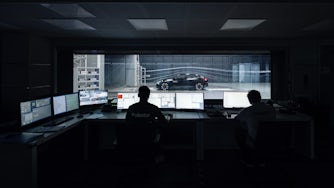Polestar's latest in-car app: Behavioural science is taking on EV charging
A new renewable charging app in the Netherlands has the potential to transform the EV charging landscape by providing real-time data on the country's energy mix. We spent the day with Behavioural Scientist Bodine van Styrum to learn the complex processes behind decision-making and how technology, including Polestar's new in-car renewable charging app, can play a vital role in tackling climate change.
The Netherlands is a country of contrasts. As one of the most densely populated nations in the world, you'd expect a certain amount of frenzy. After all, the region forms part of the Blue Banana: that great arcing European megalopolis that stretches from Liverpool to Milan, which contains over 100 million people. But anyone who has visited will know it's quite the opposite. This is a land of canals and tulips. Even the urban centres of Amsterdam and Rotterdam exude an air of tranquillity. It may be down to a sense of collectivism fostered by their proximity to each other, but people here have learned to adapt to their environment with a certain degree of thoughtfulness for their neighbours.
So, when Polestar decided to launch a new green charging app earlier this year, it made sense to pick a country known for its sense of cooperation and transparency.
Energy mix
The concept is simple enough to explain. We all know electricity can come from different sources - some good, some not so good. In the Netherlands, this energy mix is mostly from three main four: wind (good), solar (good), and coal and gas (not so good).
Unlike many countries, the Dutch government provides live updates on the grid's energy mix. Using data from green energy company Vandebron, the app shows an hourly forecast of the different energy sources at EV charging stations nationwide. With the ratio of renewable to non-renewables varying significantly throughout the day, this data provides drivers with the information required to make informed decisions that directly impact the environment.
"Behavioural change has the potential to reduce global emissions by 40-70 percent by 2050," explains Bodine van Styrum, citing a recent Intergovernmental Panel on Climate Change report. A trained applied behavioural scientist, Bodine now runs her own company, SustainabilitySpot, which specialises in helping large companies increase employee engagement around a wide range of sustainability issues. "We help companies understand the behaviour of their employees in the context of sustainability. With this knowledge, we create concrete plans to drive action and change."
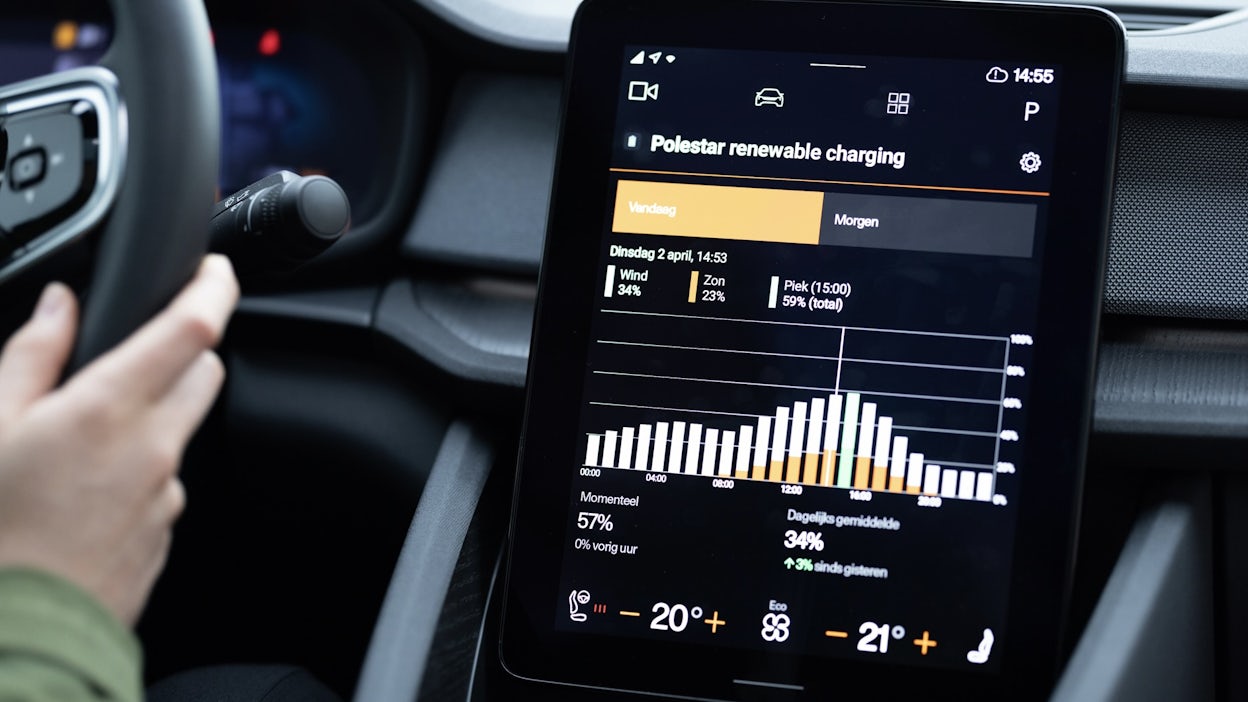
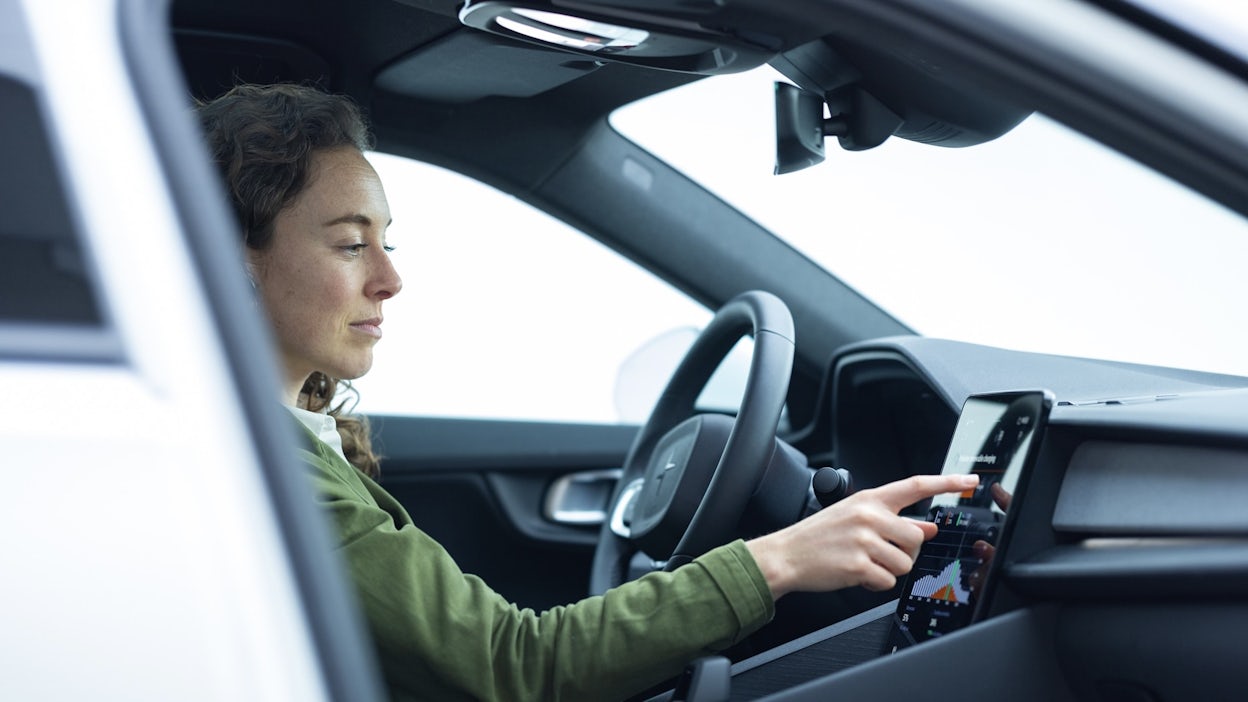


01/02
People should know that driving green means charging green
Polestar charging app
In many ways, the Polestar renewable charging app takes a similar approach. By providing knowledge in an easy-to-use platform, the app's goal is also to drive action and change. Users are able to reduce their environmental impact by charging their cars during renewable energy peaks on the grid. "People require resources and infrastructure to engage in specific behaviours. This is where the Polestar app plays a crucial role. Behaviour can become more difficult or easier through physical obstacles or aids in the environment. The in-car app is an aid for drivers to show more green charging behaviour."
By providing information, the app acts as a pivotal tool in our decision-making process. But why do people make the decisions they do?
Bodine, of course, has the answer. "Decisions are all around us. Where am I going to buy coffee, what am I going to eat, how am I travelling to work or on holiday, and when and where am I going to charge my car? To save mental energy, most decisions are made by automatic, unconscious processes that our brains are hardly aware of. The behaviours following these decisions are often habitual."
Habit formation is something we all do (and it's a process that can happen very quickly). Habit breaking is another matter altogether. Motivating people to part ways with negative habits by prodding them towards more positive behaviours isn't new. It's called nudging in the behavioural science world. The nutritional labels on your food packaging. Environmental stamps on car seats. The packaging of nicotine products. These are all classic examples of small interventions that move people towards making better decisions simply by providing better access to information. "To change behaviour, people must feel that they want to and can exhibit the desired behaviour," says Bodine. "But sustainable behaviours should be made easy and attainable; that's where the power of the in-car app lays."
Use phase emissions
Bodine likes to say that "driving green means charging green." She points out that the "use phase" of a car's lifespan (the bit when it's on the road) is as responsible for a vehicle's climate footprint as the manufacturing process. For those of you paying attention, news like this won't come as a surprise. Polestar life cycle assessments (our reports that detail greenhouse gas emissions for a product throughout its lifespan) show that the environmental impact of EVs drastically diminishes the more renewable energy is used to charge.
The numbers can be significant. For example, in the Polestar 3, the use phase accounts for 37 percent of the vehicle's total climate impact if the car is charged with a mixture of good and bad energy sources. However, if the vehicle is only charged with renewable energy, the impact from the use phase is almost zero. For Polestar 3, the difference between using green charging and, say, a typical electricity mix from the grid could be up to 16 tonnes CO2-eq.
With carbon savings this size a distinct possibility, technology like the Polestar renewable charging app provides valuable solutions to tackle mobility's energy problem.
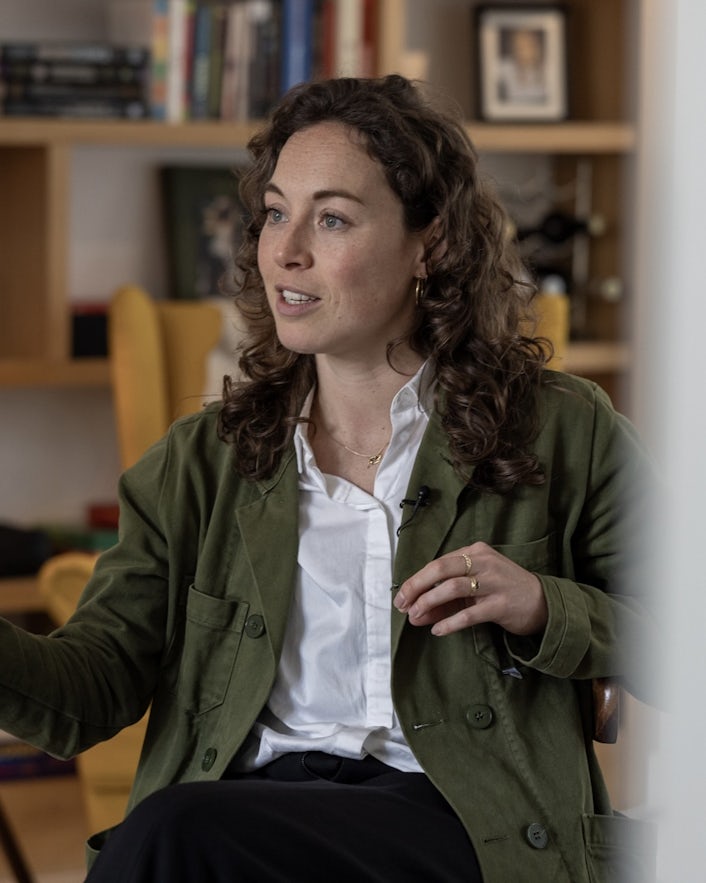
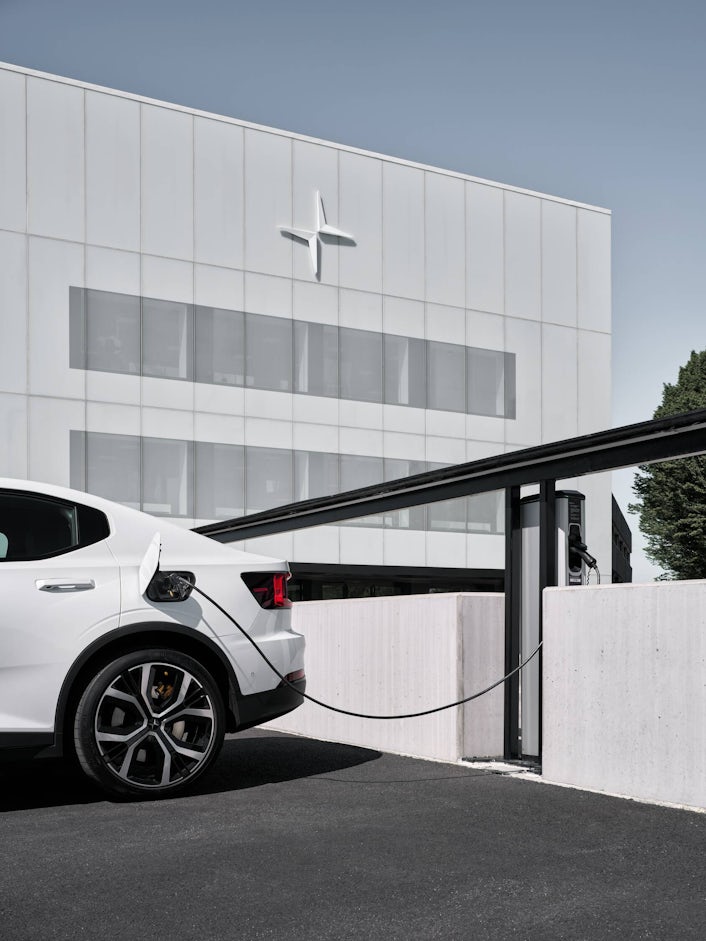
Of course, nudging drivers to charge with renewable energy is just the first step. In the future, EVs can become a natural part of a renewable energy system by enabling automated smart charging and Vehicle-2-Grid solutions that don't require driver intervention. Until then, information remains the ultimate tool.
"Knowledge is often an important first step to behavioural change," Bodine says at the end of our conversation. Who could argue with that?
Note: The Polestar renewable charging app will only be available to customers in the Netherlands.


